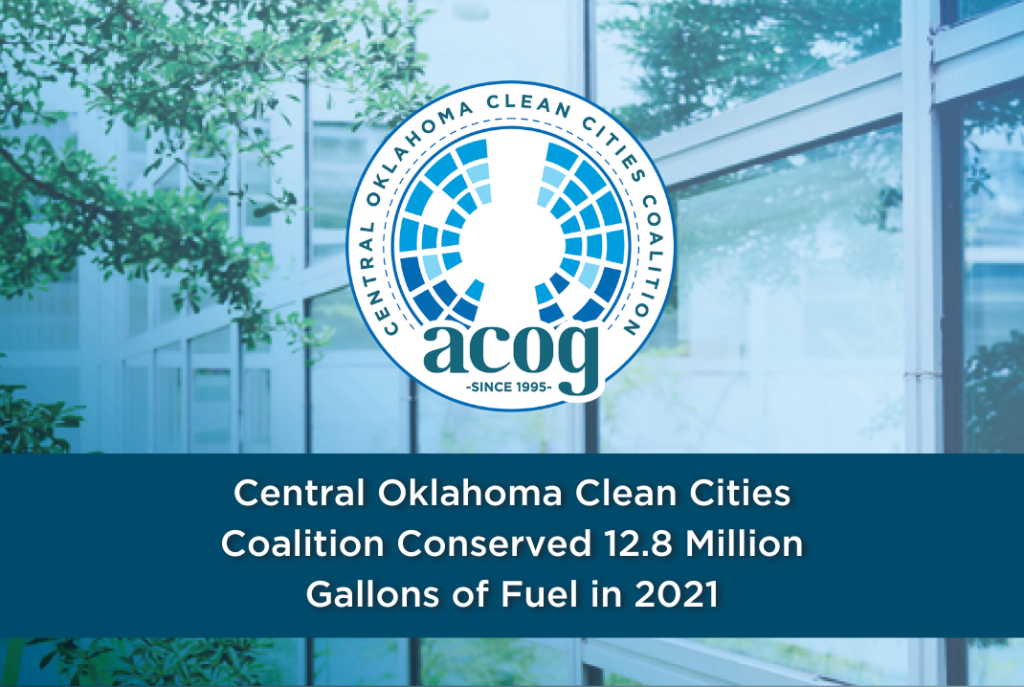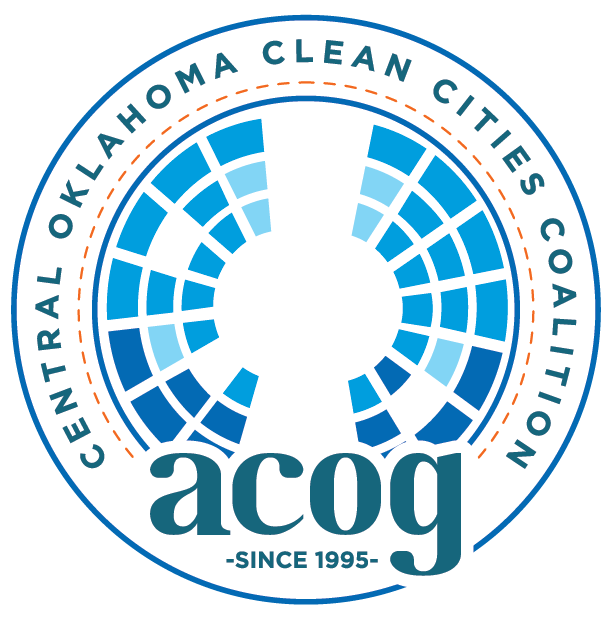
Central Oklahoma Clean Cities Coalition Conserved 12.8 Million Gallons of Fuel in 2021
Fuel savings resulted in 33,011 tons of greenhouse gas emissions reduced
OKLAHOMA CITY – The Central Oklahoma Clean Cities Coalition, a program of the Association of Central Oklahoma Governments (ACOG) has released its annual Transportation Technology Deployment Report which details alternative fuel usage and fuel conservation efforts in Central and Western Oklahoma.
In 2021, the Coalition reported the following:
- 6,563 pounds of oxides of nitrogen (NOx) reduced; 65,857 pounds of volatile organic compounds (VOCs) reduced, both are ground-level ozone precursor pollutants
- 8 million gallons of gasoline equivalent reduced
- 33,011 tons of greenhouse gases (GHG) reduced
The reductions are equivalent of taking 24,510 passenger cars off the road in Central Oklahoma, based upon an estimate calculated using the Environmental Protection Agencies’ (EPA) Greenhouse Gas Equivalencies Calculator.
“In 2021, the fleets and businesses that make up the Clean Cities Coalition continued to show why we are national clean transportation leaders,” said Mark Sweeney, ACOG Executive Director. “It is all about cutting transportation costs for businesses and families while protecting Oklahoma’s environment and public health.”
DOE’s Clean Cities program is fuel neutral meaning compressed natural gas (CNG), propane, E85 (ethanol), biodiesel, hydrogen, and electricity are all important in meeting clean air goals.
Public and Private Fleets have also noted how the price stability of alternative fuels fosters confidence in continued investment in vehicles and infrastructure – even when dealing with supply chain challenges.
Earlier this year, City of Norman officials reported more than $500,000 in cost savings from CNG use in their fleet.
“An increasing number of CNG providers are now offering renewable natural gas (RNG) to customers which further propels GHG emissions reductions,” said Eric Pollard, Central Oklahoma Cities Coalition Co-Director and ACOG Air Quality & Clean Cities Manager.
RNG is biogas typically sourced from landfills, wastewater treatment plants, and agriculture operations that is processed to pipeline-quality gas instead of being flared or used for other purposes.
The Transportation Technology Deployment Report data is verified by the US Department of Energy (DOE) as part of a Clean Cities Coalition Network Outreach, Education, and Performance Tracking grant award. Read a summary of the report here.
Central Oklahoma Clean Cities is a U.S. Dept. of Energy designated alternative fuels public and private stakeholder coalition at the Association of Central Oklahoma Governments. Over the last 26 years, coalition stakeholders have displaced nearly 76 million gallons of gasoline and diesel fuel with alternative fuels and fuel saving efforts.
Staff Contacts
Rachel Meinke
Public Information Director
